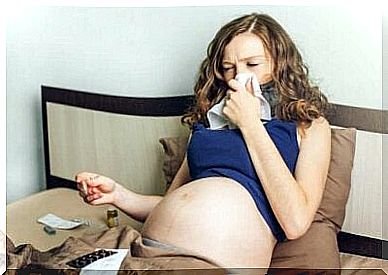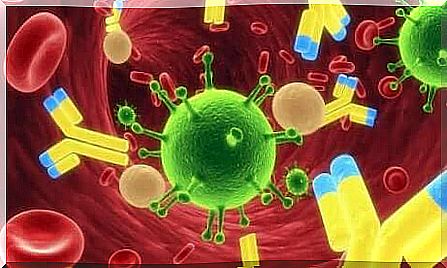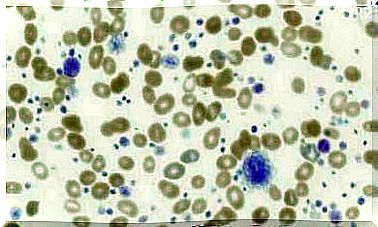Measles In Pregnancy: Symptoms And Treatment
Measles in pregnancy involves a number of risks for the mother and the fetus. This is why it is important to know how the disease manifests itself and what can be done to prevent it.

Measles is a contagious respiratory disease that can be fatal. Measles during pregnancy is a danger to the health of the mother and the fetus, increasing the risk of premature birth, miscarriage and malformation of the infant.
Although it is a disease that vaccination can prevent, and although death rates from measles have fallen by 80% over the past 10 years, 110,000 deaths were recorded in 2017. , mainly in children under 5 years old.
What is measles?
Measles is a disease caused by a virus of the paramyxuvirus family. This virus reproduces in the nose and throat of people and is spread when it is expelled by coughing or sneezing. The virus can stay in the air or settle on a surface, where it remains active for several hours and can infect people who come in contact with it.
Symptoms
Symptoms of measles appear 10 to 14 days after exposure to the virus and come in different forms. They include the following:
- Fever
- Cough and sore throat
- Rhinitis
- Conjunctivitis
- Spots inside the mouth called Koplik’s spots
- Rash all over the body
These symptoms appear in two stages. First, cold or flu symptoms appear, such as fever, cough, and eye pain. After two or three days, the rash begins to appear and inside the mouth. Over the days, the rash spreads all over the body.
Measles is contagious from the first few days of flu-like symptoms and up to 4 days after the rash appears. Without complications, the disease lasts about 10 days.

Complications of measles
The most common complications of measles are:
- Diarrhea
- Pneumonia
- Encephalitis
- Corneal ulceration
A less common case is panencephalitis, which occurs when the virus becomes lodged in the brain. It remains passive there for periods of 4 to 8 years. The virus eventually progresses and becomes active, causing serious neurological problems that lead to personality disorders, motor problems and ultimately death.
Measles during pregnancy
Pregnant women who have never had the disease or who have not received the vaccine are susceptible to infection. Dr. Neil Silverman, board member of the Center for Fetal Medicine and Ultrasound for Women in Los Angeles, Calif., Warns that symptoms of measles during pregnancy are often more severe and have fetal and pregnancy consequences .
The main risks for the baby are:
- Premature birth
- Abortion
- Encephalitis
- Blindness
- Deafness
- Physical malformations
In addition, the risk of unwanted abortion and premature birth is high due to measles. If a woman gets measles, she can be treated with an injection of antibodies called serum immunoglobin, which helps make the symptoms less severe. Serum immunoglobin should be administered within 6 days of infection.
The risks of vaccination in pregnant women
Measles vaccination is done with the virus active. It should not be given to pregnant women because it can pass to the baby if the vaccination takes place during the following periods:
- From 6 months before pregnancy
- During pregnancy
- Before 30 days of the baby’s life if breastfeeding

Vaccination
The measles vaccine is recommended from 12 months and a second dose 28 days later. Research shows that the vaccine reduces the risk of getting measles by 90%.
Revaccination is recommended in some cases of adults. “When the measles vaccination started around 40 to 50 years ago, the immune system had to fight off the virus frequently.
Now that the virus is rarer, people who were vaccinated between the 1960s and 1980s may be more susceptible to the disease today, ”recommends Dr. Silverman. Therefore, vaccination against measles during pregnancy should follow the guidelines above.









